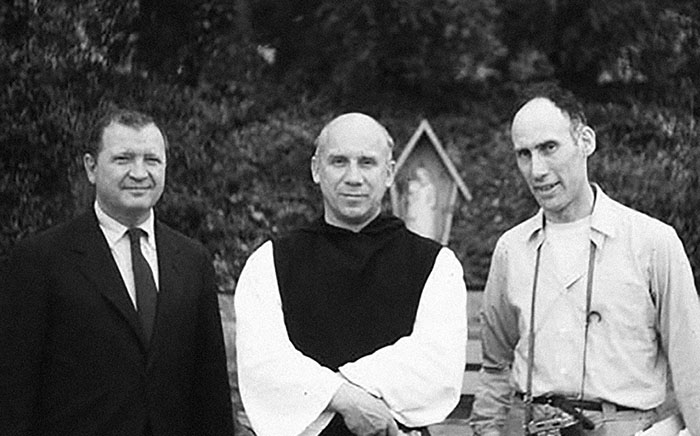Top of the Substack stack.
……………………………..
Tony Flood comments (12/23):
This was enjoyable on so many levels. There's irony in labeling these gents "idealists" (I know the sense in which you meant it) since Marxists considered theists like Merton metaphysical "idealists," but and how could any mathematician, even a Marxist one, be anything but an idealist when it comes to the reality of numbers? Your historical vignette is rich and your comparison and contrasts apt.
I know that Karl Marx occupied himself with the foundations of analysis (calculus), but I don't know whether or not he wrote anything about the philosophy of mathematics. To answer Tony's question with a question: Why couldn't a Marxist take a nominalist tack and simply deny the existence of numbers and other mathematical items?
Tony replies (12/24):
"Why couldn't a Marxist take a nominalist tack and simply deny the existence of numbers and other mathematical items?"
Abstractly, Bill, I have no idea what tack Marxist materialists might take if pressed about the reality of numbers, e.g., what (and "where") they are (Plato's problem); how they're "unreasonably effective" in the natural sciences, which Marxists revere, i.e., how numbers can cause mathematical belief (Benacerraf's problem); and how numbers are knowable on the materialist/naturalist terms to which Marxists subscribe, i.e., what neural process could possibly answer to the perception of a mathematical object (Goedel's problem). I wish I could have asked Stalinist mathematician Dirk Struik (1896-2000) these questions when he and I were comrades, but I wasn't asking them then. (I'm not asking them these days, but your question stimulated memories of when I did.) Nominalism is not an integral way out for Marxists, but what grounds Marxists have for valuing integral solutions, I have no idea.
Thanks for the Wigner pdf. It gets at a question that fascinated me when I was a student of electrical engineering at the end of the 'sixties. How is it that the theory of complex numbers — developed a priori in response to a purely theoretical question about the roots of negative integers — finds application in alternating current theory?
I say 'developed,' Wigner says 'invented.' "The principal emphasis [in mathematics] is on the invention of concepts. Mathematics would soon run out of interesting theorems if these had to be formulated in terms of the concepts which already appear in the axioms." I wrote 'developed' because of my platonizing tendency to view mathematical entities — 'entities' betrays me too inasmuch as it begs the question I am about to pose – as discovered rather than invented. The question that my use of 'entities' begs is precisely the question whether mathematical 'items' — a colorless, non-question-begging bit of terminology — are made up by us (in which case they cannot be called entities or beings) or are really but non-spatially 'out there' in Plato's topos ouranios. My platonic drift links up with my classical theism and issues in the view that the unspeakably vast actual infinity of mathematical items are accusatives of divine awareness: their Being is their being-known/created by the archetypal intellect. This sort of view allows for the mediation of two extremes, a synthesis if you will.
Thesis: math items exist in themselves in splendid independence of ectypal intellects (whether human, Martian, angelic, whatever). Antithesis: math items do no such thing; they are the conceptual/linguistic fabrications of ectypal intellects such as ours. And now my mind drifts back to Hartry Field's nominalistic Science without Numbers, circa 1980, the gist of which is that science can be done without ontological commitment to any so-called abstract entities. There are some very smart nominalists and they are hard to beat. Shooting from the hip, I say Field 'out-quines' Quine.
But here's a thought. Suppose Wigner is right and mathematica are inventions by us, which is to say that they are conceptual/linguistic fabrications that do not refer to anything real anywhere, whether in Plato's heaven or on Aristotle's earth. Would that not make the problem of the applicability of mathematics to the physical world utterly insoluble?
There is a Kantian-type solution, but then you have to take on board the Kantian baggage.
It looks like I have, willy-nilly this Christmas eve, added a log to my aporetic fire in support of my metaphilosophical thesis that the central problems of philosophy, though obviously meaningful, pace the later Ludwig, are all of them absolutely insoluble by intellects of our constitution. Insofar forth, I am mightily impressed by the thesis of the infirmity of reason. The Fall had noetic consequences.
Below: Raphael, The School of Athens depicting Plato gesturing upwards, as if to the mundus intelligibilis and Aristotle downwards as if to the mundus sensibilis.


